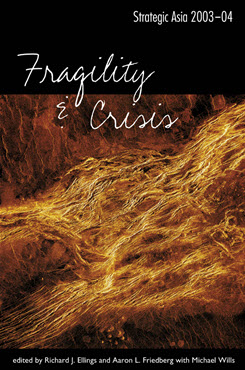Terrorism
The War on Terrorism in Southeast Asia
Southeast Asia has emerged as a key theater of operations for Al Qaeda through its regional affiliate Jemaah Islamiyah, which has developed a powerful operational capability, culminating in the 2002 Bali bombings in which 202 people were killed. Although bilateral cooperation has improved, there are still no effective multilateral tools for fighting terror. There has been little willingness to address terrorist funding in the region.
Southeast Asia has emerged as a key theater of operations for Al Qaeda through its regional affiliate Jemaah Islamiyah, which has developed a powerful operational capability, culminating in the 2002 Bali bombings in which 202 people were killed. Jemaah Islamiyah, with its established leadership body, regional structure, and a network for recruiting and training, has been affected by the war on terror in Southeast Asia—about 200 Jemaah Islamiyah members had been arrested by August 2003, including some top leaders. Yet most of its senior operatives remain at large. Jemaah Islamiyah is now less able to plan and execute terrorist attacks than in late 2001, but it maintains the capacity to hit soft targets and critical infrastructure. Although every state in Southeast Asia has joined the war on terror, they have done so only to the degree that it benefits them politically and diplomatically. The political will to fight the war has waned as many states in the region entered a year of important elections. Although bilateral cooperation has improved, there are still no effective multilateral tools for fighting terror. There has been little willingness to address terrorist funding in the region.
Strategic Asia
The Strategic Asia annual edited volume incorporates assessments of economic, political, and military trends and focuses on the strategies that drive policy in the region. Learn more about Strategic Asia.


